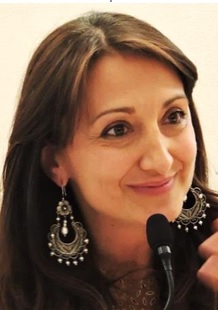Training and Research
PhD Programme Courses/classes - 2020/2021
Academic Presentation Skills (advanced)
Credits: 2
Language: Italian
Teacher: Silvia Cavalieri
Academic Writing (advanced)
Credits: 2
Language: Italian
Teacher: Silvia Cavalieri
Academic writing in latex and academic presentation
Credits: 2,5
Language: Italian
Advanced English for Academic Skills
Credits: 2,5
Language: Italian
Teacher: Sharon Hartle
Agenda dell’organizzazione delle nazioni unite 2030 sullo sviluppo sostenibile, ricerca e diritto antidiscriminatorio: strumenti ed esperienze nelle università
Credits: 1
Language: Italian
Grammatiche artificiali e apprendimento implicito
Credits: 1
Language: Italian
Teacher: Denis Delfitto
Artificial Grammar Learning 2
Credits: 0,5
Language: Italian
Teacher: Chiara Melloni
Artificial intelligence, cybersecurity e diritto
Credits: 1
Language: Italian
Collecting Linguistic data
Credits: 0,5
Language: Italian
Teacher: Valeria Franceschi
Collecting linguistic data, Part 1.2
Credits: 0,5
Language: Italian
Teacher: Silvia Cavalieri
Collecting linguistic data, Part 2.1
Credits: 0,5
Language: Italian
Teacher: Maria Francesca Bonadonna
Raccolta dati linguistici
Credits: 0,5
Language: Italian
Teacher: Silvia Domenica Zollo
Comparative Syntax 1
Credits: 1
Language: Italian
Teacher: Alessandra Tomaselli
Comparative Syntax 2
Credits: 1
Language: Italian
Teacher: Andrea Padovan
Comunicare la scienza: il ruolo dei ricercatori e il rapporto tra esperti, cittadini e istituzioni
Credits: 0,5
Language: Italian
Connessioni con altre sfere del sapere, come la filosofia o la storia dell'arte, e con altre forme di espressione artistica, come la musica e le arti figurative 1
Credits: 0,5
Language: Italian
Teacher: Isolde Schiffermuller
Connessioni con altre sfere del sapere, come la filosofia o la storia dell'arte, e con altre forme di espressione artistica, come la musica e le arti figurative 2
Credits: 0,5
Language: Italian
Teacher: Peter Erwin Kofler
Connessioni con altre sfere del sapere, come la filosofia o la storia dell'arte, e con altre forme di espressione artistica, come la musica e le arti figurative 3
Credits: 0,5
Language: Italian
Teacher: Gabriella Pelloni
Alfredo Caesella and the Russia/Soviet Musical Context (early 19th Century)
Credits: 0,5
Language: Italian
Teacher: Anna Giust
Contatti italo-slavi - Le letterature slave in Italia nel primo Novecento: il caso delle riviste fiumane
Credits: 0,5
Language: Italian
Teacher: Manuel Boschiero
Contatti italo-slavi tra fine Ottocento e primo Novecento: il ruolo delle riviste, i viaggi e gli scambi epistolari - La scoperta delle culture slave nelle riviste italiane del secondo '800
Credits: 0,5
Language: Italian
Teacher: Stefano Aloe
Corso di inglese B1/certificazione B1
Credits: 2,5
Language: Italian
Corso di inglese B2/certificazione B2
Credits: 2,5
Language: Italian
Corso di inglese C1/certificazione C1
Credits: 2,5
Language: Italian
Corso di lingua italiana per stranieri
Credits: 2,5
Language: Italian
Corso di programmazione con matlab
Credits: 2
Language: Italian
Medical statistics with R
Credits: 3
Language: Italian
Basic statistics course
Credits: 2,5
Language: Italian
Intermediate statistics course
Credits: 2,5
Language: Italian
(Meta-analysis using the statistical software Stata and R
Credits: 1,5
Language: Italian
Corso teorico-pratico di microscopia di base
Credits: 1
Language: Italian
On the notion of intertextuality and on literary intertextuality, with examples from English literature.
Credits: 0,5
Language: Italian
Teacher: Susanna Zinato
Dinamiche dell'intertestualità letteraria. Esemplificazioni dalla letteratura inglese e anglofona 2
Credits: 0,5
Language: Italian
Teacher: Annalisa Pes
Diritto d'autore e brevetti
Credits: 1
Language: Italian
Dissemination dei risultati della ricerca
Credits: 1
Language: Italian
English for academic presentations
Credits: 2,5
Language: Italian
English for academic writing
Credits: 2,5
Language: Italian
Gender issues in Shakespeare's female characters
Credits: 0,5
Language: Italian
Teacher: Sidia Fiorato
Fonetica
Credits: 1
Language: Italian
Teacher: Renzo Miotti
Shakespeare Source and Reception Studies and the Digital Turn.
Credits: 1
Language: Italian
Teacher: Silvia Bigliazzi
Phraseology and Lexicography 1
Credits: 0,5
Language: Italian
Teacher: Matteo De Beni
Fraseologia e lessicografia 2
Credits: 0,5
Language: Italian
Teacher: Elisa Sartor
Fraseologia e lessicografia/terminologia 2
Credits: 0,5
Language: Italian
Teacher: Paolo Frassi
Identities through English 1
Credits: 0,5
Language: Italian
Teacher: Roberta Facchinetti
Identities through English 2
Credits: 0,5
Language: Italian
Teacher: Sharon Hartle
Credits: 1
Language: Italian
Teacher: Maria Ivana Lorenzetti
Identities through English 4: Multimodality, identity, and affiliation
Credits: 0,5
Language: Italian
Teacher: Anna Zanfei
Intertextes - “Con voce altrui”: l’intertesto francese nell’opera di Primo Levi
Credits: 0,5
Language: Italian
Teacher: Rosanna Gorris
Intertextuality and description: around Salomé
Credits: 0,5
Language: Italian
Teacher: Laura Maria Colombo
Intertextes - Queneau and the influences of textuality
Credits: 0,5
Language: Italian
Teacher: Riccardo Benedettini
Introduzione al “public speaking”
Credits: 1
Language: Italian
Medieval literature between philology and DH
Credits: 0,5
Language: Italian
Teacher: Andrea Zinato
La mia archeologia e la mia politica culturale
Credits: 0,5
Language: Italian
Python programming language
Credits: 2,5
Language: Italian
Natural Language Processing (NLP) for analyzing written textual resources + Semantic Web and Linked Data technologies for the humanities
Credits: 2
Language: Italian
Teacher: Marco Rospocher
Presentation of Horizon Europe framework programme
Credits: 1
Language: English
Project writing for beginners
Credits: 1
Language: Italian
Seminario Consigliera di fiducia
Credits: 1
Language: Italian
Civilitas e taciturnitas
Credits: 0,5
Language: Italian
Teacher: Felice Gambin
Spin off e start-up innovative
Credits: 1
Language: Italian
Renaissance theatre and novel (theory, narratology, with examples in the Spanish novel and theatre)
Credits: 0,5
Language: Italian
Teacher: Anna Bognolo
L'Informatica Umanistica come ambito sceintifico: un'introduzione + Standard per la rappresentazione testuale nelle scienze umanistiche
Credits: 1,5
Language: Italian
Teacher: Anna Cappellotto
Translation 1
Credits: 1
Language: Italian
Teacher: Giovanni Luca Tallarico
Translation (2) Intralingual translation
Credits: 1
Language: Italian
Teacher: Barbara Bisetto
Protecting psychological well-being in the PhD program: development and enhancement of personal strategies and attitudes that predispose to professional satisfaction and ethical collaboration.
Credits: 1
Language: Italian
Working with textual files: encodings and regular expressions
Credits: 1
Language: Italian
Teacher: Marco Rospocher
Medieval literature between philology and DH (2020/2021)
Teacher
Referent
Credits
0.5
Language
Italian
Class attendance
Free Choice
Location
VERONA
Learning outcomes
The main formative aim of the teaching within the degree course is to make the students acquire a high-level competence in critically approaching the philological methods, from the stemmatica to the digitial editions. The results expected from their learning are the following:
-Knowledge and heightened understanding: in-depth knowledge of the Spanish literature of the scheduled period: historical context, texts, genres, movements, and authors dealt with in the taught module, especially with reference to the themes of cultural interchange and to the formal differentiations of the literary phenomena.
- “Applied” knowledge and heightened understanding: the students will acquire the necessary methodologies for putting them to use in working on literary texts within a historical and comparative perspective and in interpreting complex texts and implied meanings; they will have to be able to express themselves in fluent Spanish, arguing complex topics in a clear, ordered, and detailed way.
Program
Textual criticism from the 'stemmatica? to the digital editions.
The course will be taught in Italian.
Students are required to check throughout the course materials and information uploaded on E-learning UNIVR
Students who are unable to attend are required to contact the teacher.
| Author | Title | Publishing house | Year | ISBN | Notes |
|---|---|---|---|---|---|
| Monica Bertè, Marco Paoletti | La filologia medievale e umanistica, | il Mulino | 2017 | pp. 11-119 |
Examination Methods
An oral exam in Italian (or Spanish) will assess:
- a knowledge of primary and secondary texts
- the ability to articulate effectively the information and critical assessments concerning texts and topics discussed in class
PhD school courses/classes - 2020/2021
PhD School training offer to be defined
Faculty
 silvia.cavalieri@univr.it
silvia.cavalieri@univr.it

Degani Marta
 marta.degani@univr.it
marta.degani@univr.it
 +39 045802 8259
+39 045802 8259
Haugen Odd Einar
Kramer Martin
 0458028706
0458028706
 0458028706
0458028706
 dora.renna@univr.it
dora.renna@univr.it
 silvia.zollo@univr.it
silvia.zollo@univr.it
PhD students
 giorgia.andreolli@univr.it
giorgia.andreolli@univr.it
 beatrice.berselli@univr.it
beatrice.berselli@univr.it
 andrea.brugnoli_01@univr.it
andrea.brugnoli_01@univr.it
 arianna.compostella@univr.it
arianna.compostella@univr.it
 lucaelfo.jaccond@univr.it
lucaelfo.jaccond@univr.it
 gloria.mambelli@univr.it
gloria.mambelli@univr.it
 greta.viale@univr.it
greta.viale@univr.it
Loading...






































































